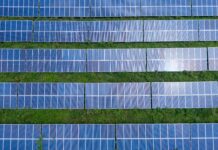Doug Young
 |
Beijing took an important step towards rejuvenating the global solar panel sector last week when it announced new steps that will strictly limit new plant construction. This kind of government-led approach is a good short-term solution, as it will halt the introduction of new supply, which in turn will allow prices to stabilize after more than 2 years of steep declines caused by massive overcapacity.
But over the longer term, China needs to address the problem at its root by changing the mindset of state-owned enterprises that own many smaller plants which contributed to the current crisis. It can do that by teaching them to make their decisions based on commercial factors and not simply in blind response to government objectives.
The rapid build-up of China’s solar panel-making sector is a typical pattern seen in China during the reform era, when government objectives often lead to massive build-ups in areas targeted for growth. Previous cycles have seen the addition of massive new capacity in a wide range of sectors, ranging from steel to cars, televisions and microchips.
Such build-ups often end with big-scale closures due to major excess capacity, wreaking havoc on not only Chinese but also global markets and resulting in billions of dollars in lost investment.
The solar sector was one such typical case, taking off after Beijing provided incentives such as cheap loans and favorable tax policies. As a result, Chinese solar panel makers came to dominate the sector over the last 5 years, overtaking western rivals to currently control up to 80 percent of the world market.
At the height of the boom, China boasted some 400 companies engaged in various aspects of panel production, as the nation’s capacity rose 10-fold over the last 5 years, according to various estimates. That rapid build-up caused prices to plunge by more than half since the downturn began in 2011, including a 20 percent decline in the last year alone.
Many western firms became insolvent in the crisis, and former Chinese leader Suntech (NYSE: STP) joined the group earlier this year when it was forced into bankruptcy. While the big names have grabbed headlines, many more smaller firms have also left the market, with one executive estimating the number of Chinese players has now fallen to 150 from the former 400.
To set the sector on a longer-term track for sustainable growth, the Ministry of Industry and Information Technology (MIIT) late last week published rules that will halt any new construction based on current technologies. (English article) This kind of restriction would never be necessary in market-oriented countries, since no company would ever enter a field where the fundamentals were still quite weak.
But in China such commercial factors are often a secondary to politics, with state-owned enterprises often building new factories with little or no chance for success in response to government priorities and directives. Beijing should be commended for issuing its latest order, which will halt new factory construction and allow the sector to finally stabilize. But over the longer term, the central government needs to teach these state-owned enterprises to only join government programs when doing so makes commercial sense, and to leave political factors out of their decisions.
Bottom line: China’s ban on new solar panel plant construction is a good first step to rejuvinating the sector, and should be followed by a re-education campaign for state-run plant owners.
Doug Young has lived and worked in China for 15 years, much of that as a journalist for Reuters writing about Chinese companies. He currently lives in Shanghai where he teaches financial journalism at Fudan University. He writes daily on his blog, Young´s China Business Blog, commenting on the latest developments at Chinese companies listed in the US, China and Hong Kong. He is also author of a new book about the media in China, The Party Line: How The Media Dictates Public Opinion in Modern China.






